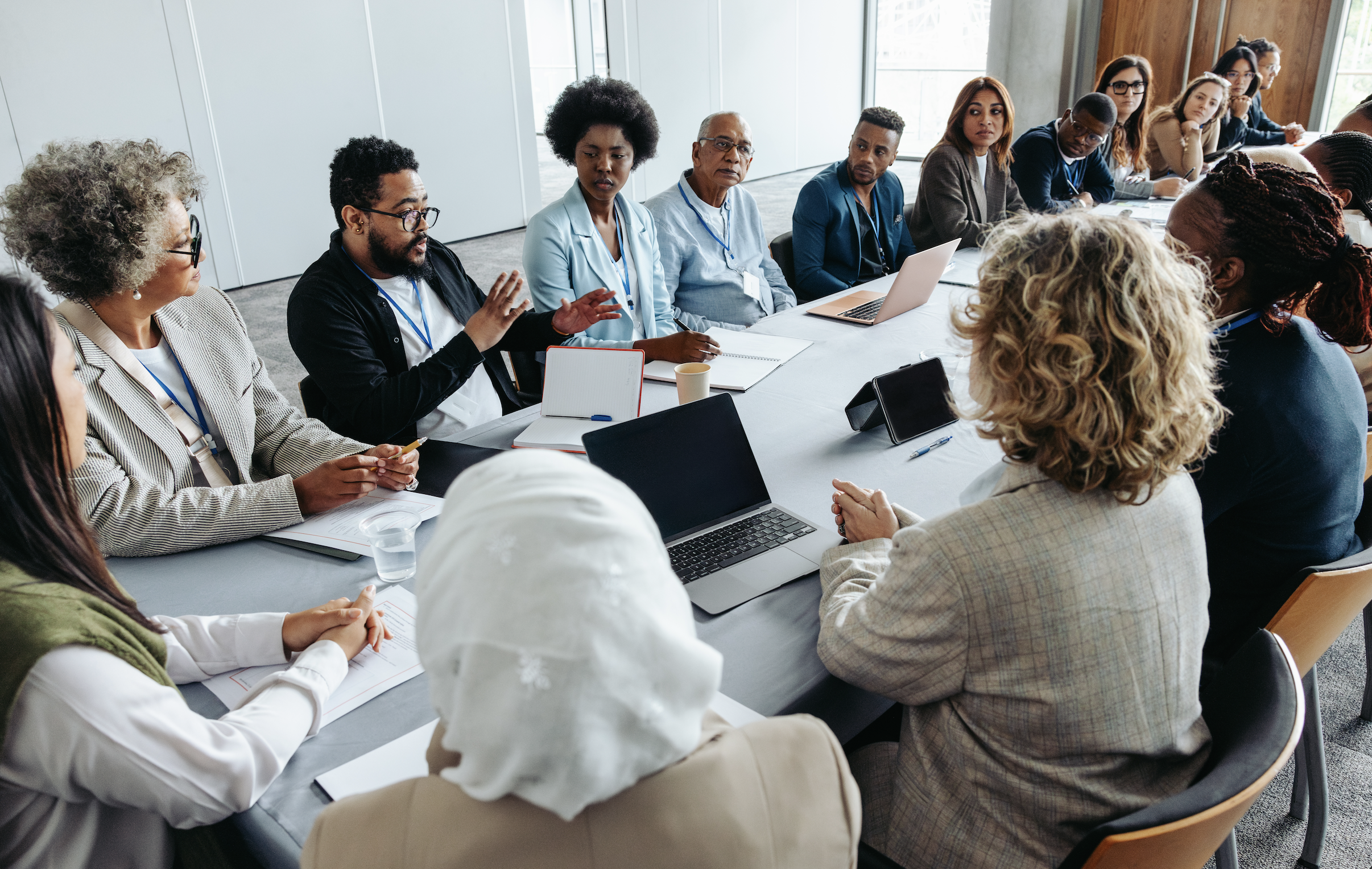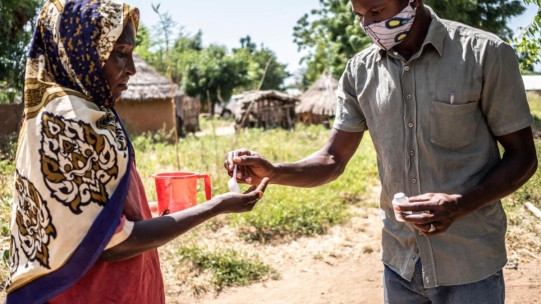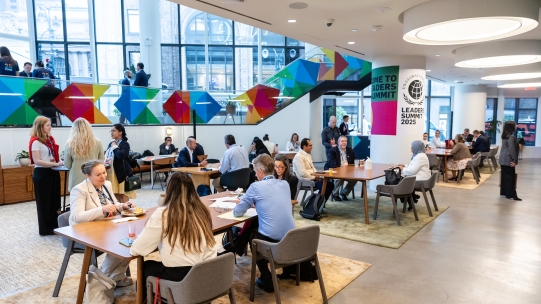The foundation of a sustainable business starts with human rights
Read more

When businesses put people first, everyone wins. Respect for human rights is essential to building inclusive societies, resilient economies and sustainable businesses. For businesses, upholding human rights is not just the right thing to do — it’s a business advantage.
When companies embed human rights in their operations and supply chains, they strengthen trust, attract talent and foster long-term stability.

From ethical supply chains to responsible AI, every business decision can either uphold or undermine human rights. Embedding human rights within business practices across procurement, product design, data management and other functions is one of the most powerful ways companies can make a meaningful contribution to sustainable development.
Strengthening human rights strengthens business
Companies that embed human rights due diligence within their strategies and operations become stronger businesses. Human rights due diligence (HRDD), is the process and global standard for companies to identify, address and prevent adverse human rights impacts across their operations and supply chains.

When companies embed human rights into their practices and policies, they:
- Reduce risk and strengthen resilience. Proactive human rights due diligence (HRDD) helps identify and prevent potential harms before they escalate into reputational, legal or operational crises. The International Labour Organization (ILO) estimates that 1approximately four per cent of global GDP is lost to work injuries and diseases, all avoidable with better implementation of Operational Safety and Health standards. Additionally, a 2024 journal study opines that ESG controversies depress Return on Equity (ROE), across sectors. Research from MSCI and McKinsey shows that companies that manage people and environmental resources responsibly create lasting value, while those that don’t risk their reputation and growth.
- Foster innovation and inclusion. Respecting people’s dignity at work and in communities fosters creativity and productivity. Inclusive workplaces are more innovative and better equipped to adapt to change. Studies show that effective human rights due diligence lowers financing costs and controversy risk, while improving productivity and worker retention.
- Build trust and brand value. Today’s investors, customers and employees want to engage with companies that stand for something. Demonstrating respect for human rights signals integrity and strengthens stakeholder relationships. A recent study of consumer activism for social justice and ethical consumerism demonstrates that boycotts can hit sales, profit, and market cap and influence corporate policy choices and business practices in sensitive political situations.
- Prepare for regulation. Laws mandating human rights due diligence are rapidly becoming the norm. Companies that align with international standards now will be better prepared for tomorrow’s regulatory landscape. According to the 2024 Social Benchmark Insights Report by the World Benchmarking Alliance, where human rights due diligence is mandated through law or regulations, companies score about 60 per cent higher in their human rights due diligence performance and face fewer access-to-market risks.
Simply put: human rights are good for people and for business.
A sustainable future includes human rights
Over 90 per cent of the Sustainable Development Goals (SDGs) are directly linked to international human rights standards. Therefore, progress on human rights is progress on the SDGs.

From commitment to action
The global business community is already moving in this direction. According to the UN Global Compact 2024 Communication on Progress, more than 90 per cent of participating companies of the UN Global Compact have human rights policies in place. Yet only 18 per cent conduct impact assessments, and, according to the 2024 Social Benchmark Insights Report, only six per cent of the world’s 2000 largest companies have fully implemented HRDD.
That gap is where leadership lies. Businesses that move from commitment to concrete action will not only future-proof themselves but also help set new norms for responsible growth.

The path forward
Every company, regardless of its size, can make a difference in people’s lives by considering human rights impacts across its operations and supply chains.
Here’s how:
- Take action through an ongoing human rights due diligence process aligned with the global standards laid out in the UN Guiding Principles on Business and Human Rights.
- Integrate human rights into core business practices, while establishing accountability mechanisms across departments to ensure compliance.
- Adopt a risk-based approach that prioritizes the most significant impacts on people and the planet across business operations and supply chains.
- Place people at the centre of due diligence, shifting the focus from “risk to business” to “risk to people and planet”. This critical shift represents the most effective way for business to contribute to sustainable development.
- Regularly monitor and report on the company’s human rights performance, providing transparency on efforts, challenges and progress.
- Collaborate with industry peers, civil society and government agencies to foster collective action and develop industry-wide standards and regulations that promote respect for human rights.
The power of business
As former UN Secretary-General Kofi Annan said, “We will not enjoy development without security, and we will not enjoy either without respect for human rights.”
Upholding human rights isn’t just the right thing to do, it’s also good for business. Conducting operations with a human-focused lens strengthens business, workforce and communities. It drives innovation, resilience and trust.

Ready to get started? Sign up to participate in the UN Global Compact Business and Human Rights Accelerator and check out our recent Human Rights Due Diligence Playbook which translates lessons from leading companies into actionable steps that strengthen alignment, accountability and performance.
Businesses have the power to lead positive change and help build a more just and equitable world for all.


